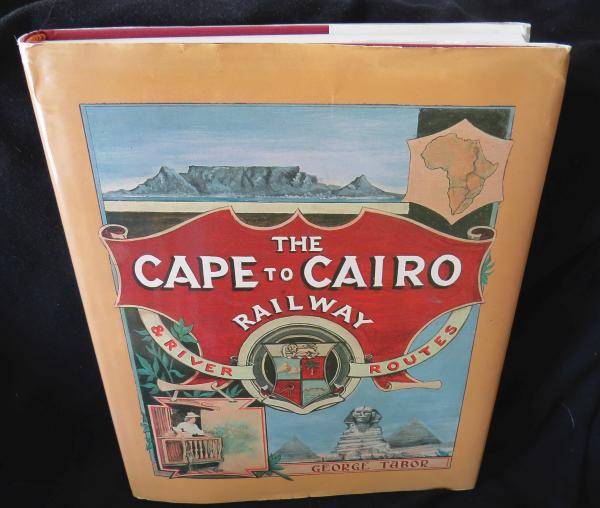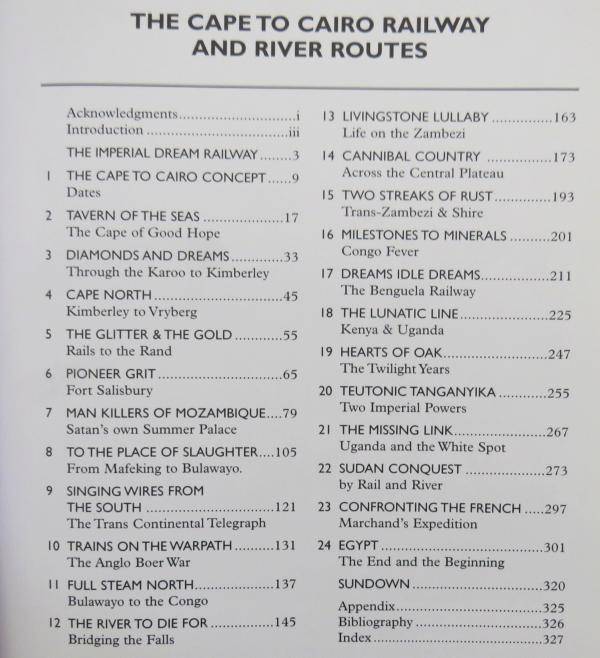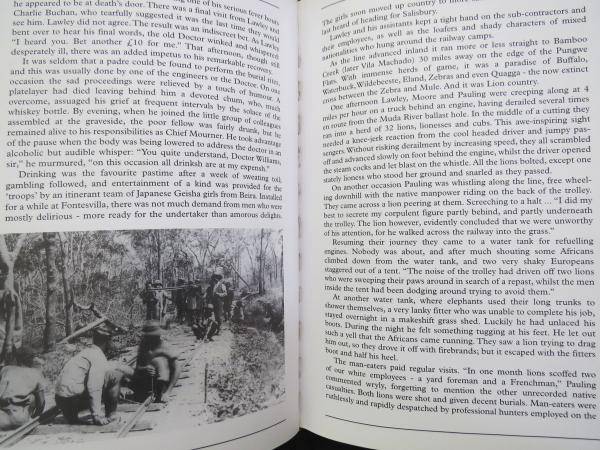





| Main centres: | 1-3 business days |
| Regional areas: | 3-4 business days |
| Remote areas: | 3-5 business days |
Condition: Very good. One sticker with owner name on flyleaf.
Format: Hardcover with DJ
Published: 2003 (Genta)
Pages: 324
ISBN: 9780954484705
A century ago, the Cape to Cairo Railway was the unfinished dream of Cecil Rhodes to link the Cape of Good Hope with the Mediterranean through the wilds of equatorial Africa. Yet the idea that you could get into a carriage at Cape Town and get out at Cairo, was not so far-fetched. Today, only a few hundred miles separate the ends of steel through two of the most troubled countries on the continent.
This well illustrated book revives the compelling story, against the intrigues of power politics and private ambitions in the `Scramble for Africa. It was the boldest scheme of its day, exceeding in scale and imagination the two other great trans-continental railways the Canadian Pacific and the Trans Siberian. From Egypt down to the Sudan, Kitchener laid rails alongside the Nile to defeat the Mandi. From the Cape of Good Hope, Rhodes reached up to prevent the Germans and the Portuguese from traversing Africa between their territories. The Lunatic Line hastened the defeat of Arab slavers. The Beira and Benguela railways opened out the Portuguese Colonies to the sea. Even in Zanzibar a tiny railway was laid down the coast for the Sultan.
Over 80 per cent of the railways in Africa were built by the British. Behind Rhodes and Kitchener was an army of Engineers, Bridge-builders, Surveyors, Gangers, Platelayers and Navvies. For Railways were built by men, not by machines. As the pioneer lines passed through lion and fever country, characters abounded. There were Cannibals, dusky Maidens, Ivory poachers, Gold diggers and Remittence men, followed by a bevy of Princesses and itinerant Aristocrats, along with the infamous Irish Brigade.
This is the saga of conquest and determination by those who forged the Iron Spine and Ribs of Africa. It is also the story of the great hotels that grew up along-side, like the Mount Nelson in Cape Town, the Victoria Falls Hotel, the Norfolk in Nairobi, the Grand in Khartoum, and Shepheards in Cairo.
George Tabor traveled widely in Africa in the course of a career in advertising and documentary films. He now lives in London and Cape Town.